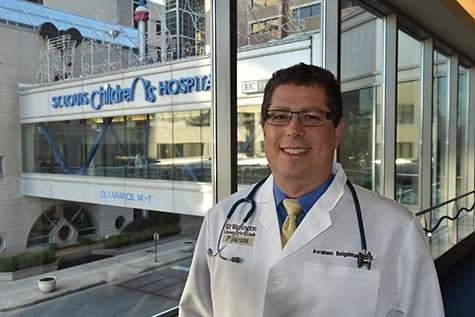Treatment strategy may reduce infants' wheezing caused by virus

(Medical Xpress)—The antibiotic azithromycin may reduce the risk of recurrent wheezing in infants hospitalized with a common respiratory infection, according to a small pilot study at Washington University School of Medicine in St. Louis. Evidence suggests that reduced wheezing may lower an infant's risk of developing asthma over the next several years.
The study appears Nov. 18 in The Journal of Allergy and Clinical Immunology.
Respiratory infections are common in a child's first years of life. Most are mild, but some infants develop such difficulty breathing, they must be hospitalized to keep their oxygen levels in normal range. The investigators focused on bronchiolitis caused by respiratory syncytial virus (RSV).
Bronchiolitis is an inflammation of the small airways in the lungs. When severe enough to require hospitalization, bronchiolitis greatly increases the risk that a child will go on to develop recurrent wheezing—a whistling sound in the lungs—and asthma.
"Almost all children will get an RSV infection during the first two years of life," said first author Avraham Beigelman, MD, an assistant professor of pediatrics who treats patients at St. Louis Children's Hospital. "But only a small fraction of these children are admitted to a hospital and have the very highest risk of developing recurrent wheezing and asthma. Researchers at Washington University have found that up to 80 percent of infants admitted to a hospital for bronchiolitis will have three or more wheezing episodes during the six years following the RSV hospitalization."
Beigelman and his colleagues were interested in trying to stop the common pattern of wheezing after bronchiolitis, which often progresses to asthma. Asthma is a chronic lung condition that causes inflamed and narrowed airways, excess mucus and difficulty breathing. It is treated with inhaled steroids that reduce inflammation. But if it is poorly controlled, asthma can be life-threatening.
The researchers suspected that past efforts to reduce wheezing after RSV bronchiolitis using asthma drugs—typically corticosteroids—had been ineffective because these medications tend to relieve inflammation triggered by allergies rather than viral infections.
Previous work in mice has shown that azithromycin (Zithromax)—an antibiotic commonly prescribed for bacterial infections such as pneumonia and ear infections—reduced inflammation during viral respiratory infection. So Beigelman and his colleagues performed a small study testing the drug in 40 babies admitted to St. Louis Children's Hospital with RSV bronchiolitis over two consecutive winters. The virus is at its peak during the winter months.
"We knew azithromycin had the anti-inflammatory effects we were looking for in other airway diseases," Beigelman said. "And we showed it had the desired effect in mice with viral bronchiolitis. So the next step was this preliminary study to see if it worked in babies."
The researchers randomly gave azithromycin to half of the infants for two weeks and a placebo to the other infants over the same period. They analyzed levels of an immune system marker of inflammation in the blood and in mucus from the infants' noses. Perhaps most relevant for patients, they also monitored the number of wheezing episodes in the following year.
The results showed no differences in the levels of inflammation markers in blood samples over the two weeks following bronchiolitis, but significantly lower levels of such markers in the nasal samples of babies receiving azithromycin.
"We think the findings in nasal mucus may be most relevant because RSV is a disease of the airway rather than a systemic disease in the blood," Beigelman said. "We also showed that the children who received azithromycin had fewer days with any respiratory symptoms, including wheezing, coughing and shortness of breath, over the following year."
"We are encouraged by these results, but we are very cautious given their preliminary nature," he added. "This treatment is definitely not ready for widespread or routine clinical use, since our findings must be confirmed in a much larger and longer trial. Furthermore, there are concerns about contributing to antibiotic resistance if this drug is prescribed unnecessarily. We are developing plans for a much larger study that will follow more patients for up to four years. We will see if we can replicate our initial results and determine whether the drug's effect lasts over a few years."
More information: Randomized trial to evaluate azithromycin's effects on serum and upper airway IL-8 levels and recurrent wheezing in infants with respiratory syncytial virus bronchiolitis The Journal of Allergy and Clinical Immunology, 11/19/2014 www.jacionline.org/article/S00 … (14)01424-9/fulltext














